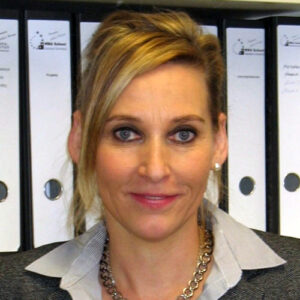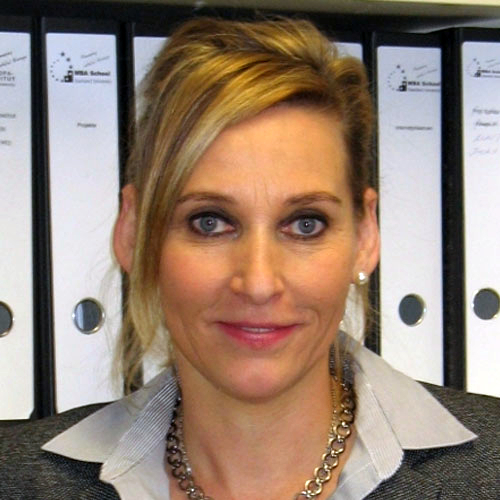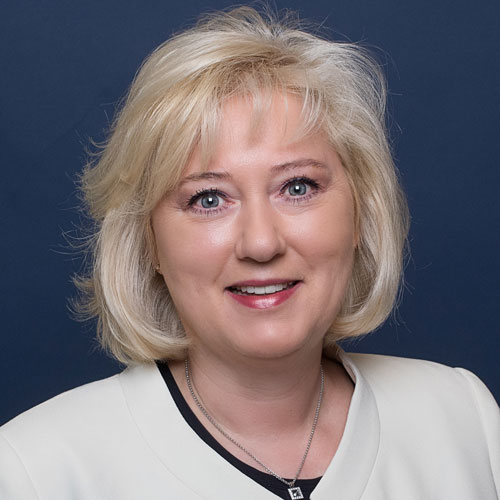 Prof. JUDr. Heid, Ph.D. hat ihr Studium der Rechtswissenschaften in Deutschland und Tschechien absolviert und verfügt über ein deutsches II. juristisches Staatsexamen, ein Doktordiplom (JUDr.) in Rechtswissenschaften der Karls-Universität Prag sowie eine Promotion an der Universität Würzburg in Kooperation mit der Karls-Universität Prag. Bevor sie Beamtin im Bereich der Universitätsverwaltung in Bayern wurde, war sie Assistenzprofessorin und Lehrstuhlinhaberin für Europarecht (Jean-Monnet-Lehrstuhl) an der Universität Bamberg (DE). Im Jahr 2005 wurde sie Professorin an der Fachhochschule des Bundes für öffentliche Verwaltung in Brühl (Köln). Ihre Forschungsfelder umfassen das Europarecht (insbes. polizeiliche und justizielle Zusammenarbeit, Wettbewerbsrecht), das Recht des Öffentlichen Dienstes (Arbeitsrecht / TVöD, Beamtenrecht), das tschechisches Recht sowie das nationale und internationale Polizeirecht.
Prof. JUDr. Heid, Ph.D. hat ihr Studium der Rechtswissenschaften in Deutschland und Tschechien absolviert und verfügt über ein deutsches II. juristisches Staatsexamen, ein Doktordiplom (JUDr.) in Rechtswissenschaften der Karls-Universität Prag sowie eine Promotion an der Universität Würzburg in Kooperation mit der Karls-Universität Prag. Bevor sie Beamtin im Bereich der Universitätsverwaltung in Bayern wurde, war sie Assistenzprofessorin und Lehrstuhlinhaberin für Europarecht (Jean-Monnet-Lehrstuhl) an der Universität Bamberg (DE). Im Jahr 2005 wurde sie Professorin an der Fachhochschule des Bundes für öffentliche Verwaltung in Brühl (Köln). Ihre Forschungsfelder umfassen das Europarecht (insbes. polizeiliche und justizielle Zusammenarbeit, Wettbewerbsrecht), das Recht des Öffentlichen Dienstes (Arbeitsrecht / TVöD, Beamtenrecht), das tschechisches Recht sowie das nationale und internationale Polizeirecht.
Der Kurs „European Regulations“ vermittelt den Studierenden anhand aktueller Fälle und Beispiele Wissen rund um europäische Institutionen, das EU-Recht im Managementkontext oder auch Wettbewerbs- und Kartellrecht.
Da Prof. JUDr. Heid, Ph.D. selbst eine erfahrene Praktikerin ist, gibt sie den Studierenden, neben den vielen theoretischen Fakten auch viele Einblicke in die praxisnahe Realität.
M2-2 European Regulations
The course introduces the legal framework and the basic economic provisions of the EU. The operating approach is a mix of stand-up teaching for the more technical and theoretical subjects, and a series of case studies on topics which are particularly relevant to the business community: the basic legal principles of cooperation and harmonization in the European Union, the four freedoms in the Internal Market and, mainly, competition law in the meaning of mergers, cartels, abuse of dominant positions as well as the European state aid control system and relevant provisions.
Studierende sagen:
“A particular enjoyment was the fact that the course was well structured. A lot of different legal subjects needed to be covered and they are separated clearly and nicely, while at the same time they supplemented each other. Also, the issues that were raised with questions and the case study sparked a lot of interesting conversations. All in all, even if the class was in an electronic form, it was done properly.” (ST 2019/20)




